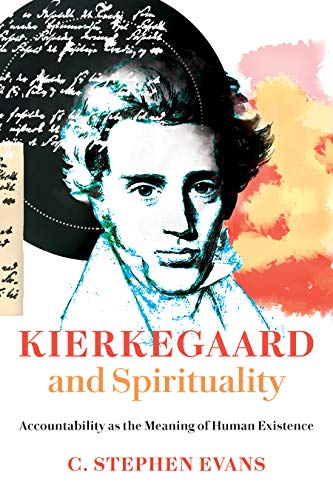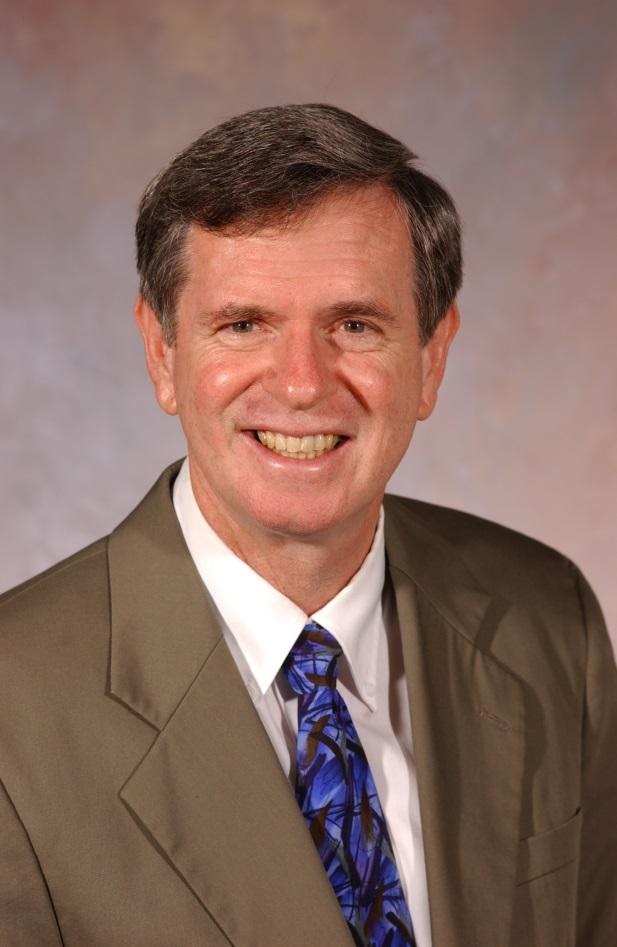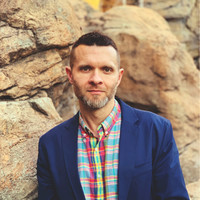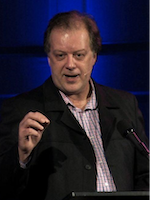KLC is deeply committed to intellectual community rooted in Christian spirituality. Thus we are delighted to invite you to join us for this event, as we engage with C. Stephen Evans’ wonderful new book, Kierkegaard and Spirituality: Accountability as the Meaning of Existence.
Kierkegaard (1813-1855) died very young but in his short life he produced a remarkably rich and sophisticated corpus of work. He is one of Craig Bartholomew’s favourite philosophers and in Craig’s opinion one of the most profound Christian thinkers in history. Intriguingly, Kierkegaard’s philosophy was intentionally missional, using indirect communication and a host of pseudonyms to encourage his fellow, Danish citizens to think through the truth for themselves rather than simply assuming they were Christian because they were Danish.
Kierkegaard has been seen as many things: the father of existentialism and a forerunner of postmodernism, but in recent years there has been a retrieval of him as a Christian thinker. C. Stephen Evans is a world authority on Kierkegaard and has played a major role in the recovery of Kierkegaard as a profoundly Christian philosopher. Evans’ Kierkegaard: An Introduction (CUP, 1989) is an outstanding introduction to the thought of this complex thinker, and in 2019 Evans published Kierkegaard and Spirituality: Accountability as the Meaning of Existence.

We live spiritually when we live in the presence of God.
The Danish philosopher Søren Kierkegaard is often read for his contributions to Christian theology, but he also has much to offer about spirituality—both Christian and more generally human.
C. Stephen Evans assesses Kierkegaard’s belief that true spirituality should be seen as accountability: the grateful recognition of our existence as gift. Spirituality takes on a Christian flavor when one recognizes in Jesus Christ the human incarnation of the God who gives us being. In this clearly written and substantive book a leading scholar on Kierkegaard’s thought makes Kierkegaard’s contributions to spirituality accessible not only to philosophers and theologians but to pastors, spiritual directors, and lay Christians.
Stephen Evans (Ph.D. Yale University) is currently University Professor of Philosophy and Humanities at Baylor University and director of the Baylor Center for Christian Philosophy. He also serves as a Professorial Fellow at the Logos Institute for Analytic and Exegetical Theology at the University of St. Andrews. His published works have focused on Kierkegaard, philosophy of religion, ethics, and the philosophy of psychology. Evans has published more than 20 books and over 100 professional articles. He has received numerous awards and grants, including two Fellowships from the National Endowment for the Humanities and major grants from the Pew Charitable Trusts and the Templeton Religion Trust. He is a past president of the Society of Christian Philosophers and the Kierkegaard Society of North America.

The event will begin with an introduction from Dr Evans regarding his work and this book in particular. After which we will hear from three speakers who will engage with the book.

Abstract: Evans argues that the key to Kierkegaardian spirituality is relationality. Despite all of the areas upon which he focuses, one that I believe needs more development is the role of humility and hospitality in such relational life. Sadly, the recent pandemic has highlighted a failure of spiritual life among far too many Christians, who seem to be more interested in their own social status and claims to “religious freedom,” than emulating the kenotic love of Christ in relation to vulnerable others. Ironically, just like the virus is spread by ill-advised personal contact, we are seeing a spiritual pandemic such that being around some others (within particular churches, online communities, and the echo-chambers created by such communities) tends to lead to viewing other others as no longer our neighbors. By drawing on Kierkegaard’s account of Christian practice and Evans’ articulation of Kierkegaardian spirituality, I aim to outline a critique of some strains of contemporary Christianity that are ignoring the task of spirituality as a matter of neighbor-love anchored in humility and hospitality—as offered in the paradigm of Christ. Ultimately, my claim will be that not only are far too many “Christians” failing at Christian spirituality, they are not even meeting the basic requirements of what Evans terms “generic human spirituality.”
Abstract: In contrast to the autonomous Romantic creation of self, Kierkegaard suggests that one joins in the work of being “poetically composed” by Christ. If the free play of fantastical imagination harnesses the passions in creation of illusory pseudo-realities (exacerbated by a world of social media echo chambers and fake news), then Evans’ Kierkegaardian framing of accountability to God offers a relational anchor point for the flourishing of productive imagination in spiritual formation.


Abstract: Kierkegaard insightfully views being human as a process of becoming and as a task. Too often Christian practices militate against us becoming fully human. I will use Kierkegaard and Evan’s rich and lucid exposition of his view of spirituality to open up a discussion of how Christian spirituality relates to our humanity. In the process I will bring Evans’ work into dialogue with the “icon” of the knight of faith as depicted in Kierkegaard’s Fear and Trembling, in order to show that Kierkegaard’s approach and that of Christian spirituality is genuinely good news.
The Kirby Laing Centre for Public Theology in Cambridge. Charity registered in England and Wales. Charity Number: 1191741
Kirby Laing Centre, The New Mill House, Unit 1, Chesterton Mill, French’s Road, Cambridge, CB4 3NP
© 2022 The Kirby Laing Centre for Public Theology in Cambridge